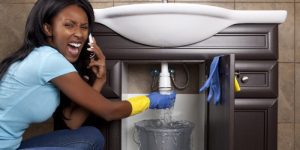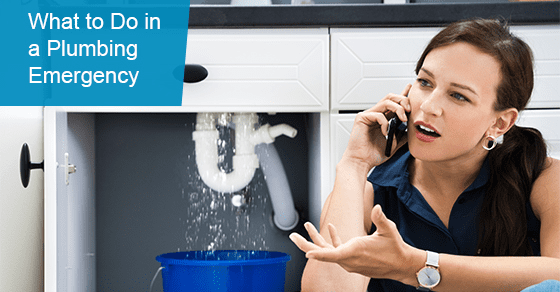A plumbing emergency can strike at any time, often causing panic and confusion. Knowing what to do in such situations can save you from expensive repairs, water damage, and frustration. In this comprehensive guide, we’ll discuss what steps to take when faced with a plumbing emergency and how to avoid further damage until help arrives. Whether you’re dealing with a burst pipe, a clogged drain, or a water heater malfunction, these tips will help you stay calm and manage the situation effectively.
Understanding Common Plumbing Emergencies
Before diving into the actions to take during an emergency, it’s important to understand the most common types of plumbing problems that can lead to urgent situations. These include:
1. Burst or Leaking Pipes
A burst or leaking pipe is one of the most severe plumbing emergencies. The water can quickly flood your home, causing significant damage to walls, floors, and furniture. This issue is commonly caused by frozen pipes in cold weather, pipe corrosion, or high water pressure. If not addressed quickly, it can result in costly repairs and water damage restoration.
2. Clogged Drains or Toilets
A clogged drain or toilet is a frequent household issue. However, when it escalates to the point of overflowing or causing a backup, it can become an emergency. A clogged toilet can lead to water damage and unpleasant odors, while a backed-up sink can disrupt daily activities. Most clogs are caused by grease, hair, soap, or foreign objects, but more serious issues like tree root invasions or pipe damage can also be to blame.
3. Water Heater Failure
A malfunctioning water heater may not seem like an emergency at first, but it can leave you without hot water for bathing, cooking, and cleaning. In some cases, a water heater can leak or even cause flooding if the tank bursts. Ignoring signs of trouble like strange noises, fluctuating water temperatures, or leaks can lead to bigger issues.
What to Do in a Plumbing Emergency
Knowing how to act quickly during a plumbing emergency can minimize the damage and help prevent costly repairs. Below, we outline key steps you can take when faced with various plumbing emergencies.
1. Shut Off the Water Supply

In any plumbing emergency, the first step is to stop the flow of water to prevent further damage. Most homes have a main water shut-off valve located near the water meter or where the water line enters the house. If you’re dealing with a burst pipe or major leak, turn off the main water supply immediately. For smaller issues, such as a clogged toilet, you may only need to turn off the water supply to that specific fixture. This will help contain the issue and reduce water damage.
2. Assess the Situation and Take Immediate Action
After turning off the water supply, assess the situation to determine the extent of the damage. For a burst pipe, check if you can locate the source of the leak. If possible, you may be able to temporarily patch it with tape, rubber, or a clamp to slow the water flow until a plumber arrives. For a clogged drain, avoid using harsh chemicals that could damage the pipes further. Instead, try using a plunger or a drain snake to clear the blockage.
3. Call a Professional Plumber
Plumbing emergencies require professional attention. While it’s important to take immediate action, it’s equally important to contact a licensed plumber who can provide the proper repairs. Look for a plumbing company with 24/7 emergency services to ensure they can help you no matter when disaster strikes. Provide the plumber with all the necessary details, including the type of emergency and any actions you’ve already taken. This will help them arrive prepared to fix the issue.
4. Minimize Water Damage
While waiting for the plumber to arrive, it’s essential to minimize water damage. Move any valuable items, furniture, or electronics away from the affected area. Use towels or buckets to soak up any standing water, and if possible, elevate any items that may be at risk of water damage. If the leak is severe, consider turning off the electricity to the area to avoid the risk of electrical shock from water exposure.
5. Document the Damage
If you plan to file an insurance claim, it’s important to document the damage as soon as possible. Take photos or videos of the affected areas, including the leak source, water damage, and any items that were impacted. This documentation will serve as evidence when filing a claim with your insurance provider. Be sure to keep records of the plumber’s services as well.
Preventing Plumbing Emergencies
While some plumbing emergencies are unavoidable, there are preventive measures you can take to reduce the likelihood of such situations occurring in the first place.
1. Regularly Maintain Your Pipes
To prevent issues like burst pipes, it’s crucial to maintain your plumbing system regularly. Insulate pipes in areas prone to freezing, such as basements, attics, and exterior walls. Regularly check for leaks or signs of corrosion, and replace old or damaged pipes before they fail. Scheduling routine plumbing inspections can also help detect potential problems before they escalate into emergencies.
2. Avoid Flushing Improper Items
Clogged drains and toilets are often caused by improper flushing habits. Avoid flushing anything other than toilet paper, and be mindful of what goes down your drains. Avoid pouring grease, oils, or food scraps down the sink, as these can create blockages in the pipes. Use drain covers to catch hair and debris and keep drains flowing freely.
3. Service Your Water Heater Regularly
To ensure your water heater functions properly, have it serviced regularly. Sediment buildup can cause issues like inconsistent water temperature or leaks, so flushing the tank once a year can help maintain its efficiency. Additionally, check the pressure relief valve to ensure it’s working properly, as a faulty valve could lead to dangerous pressure buildup and potential flooding.
4. Install a Leak Detection System
Consider installing a leak detection system that can alert you to any water leaks in your home. These systems can detect leaks early, allowing you to address problems before they escalate into full-blown emergencies. Some leak detection systems even automatically shut off the water supply to prevent significant damage.
Conclusion
Dealing with a plumbing emergency can be stressful, but knowing what to do in advance can make a world of difference. By acting quickly, turning off the water supply, and calling a professional plumber, you can minimize damage and avoid costly repairs. Regular maintenance and preventative measures are key to reducing the chances of a plumbing emergency, ensuring your home’s plumbing system remains in good working condition. Always remember that professional help is just a call away, and never hesitate to contact an expert when needed.

